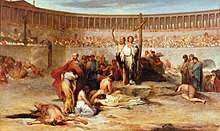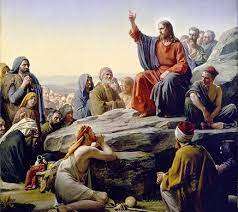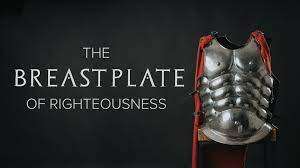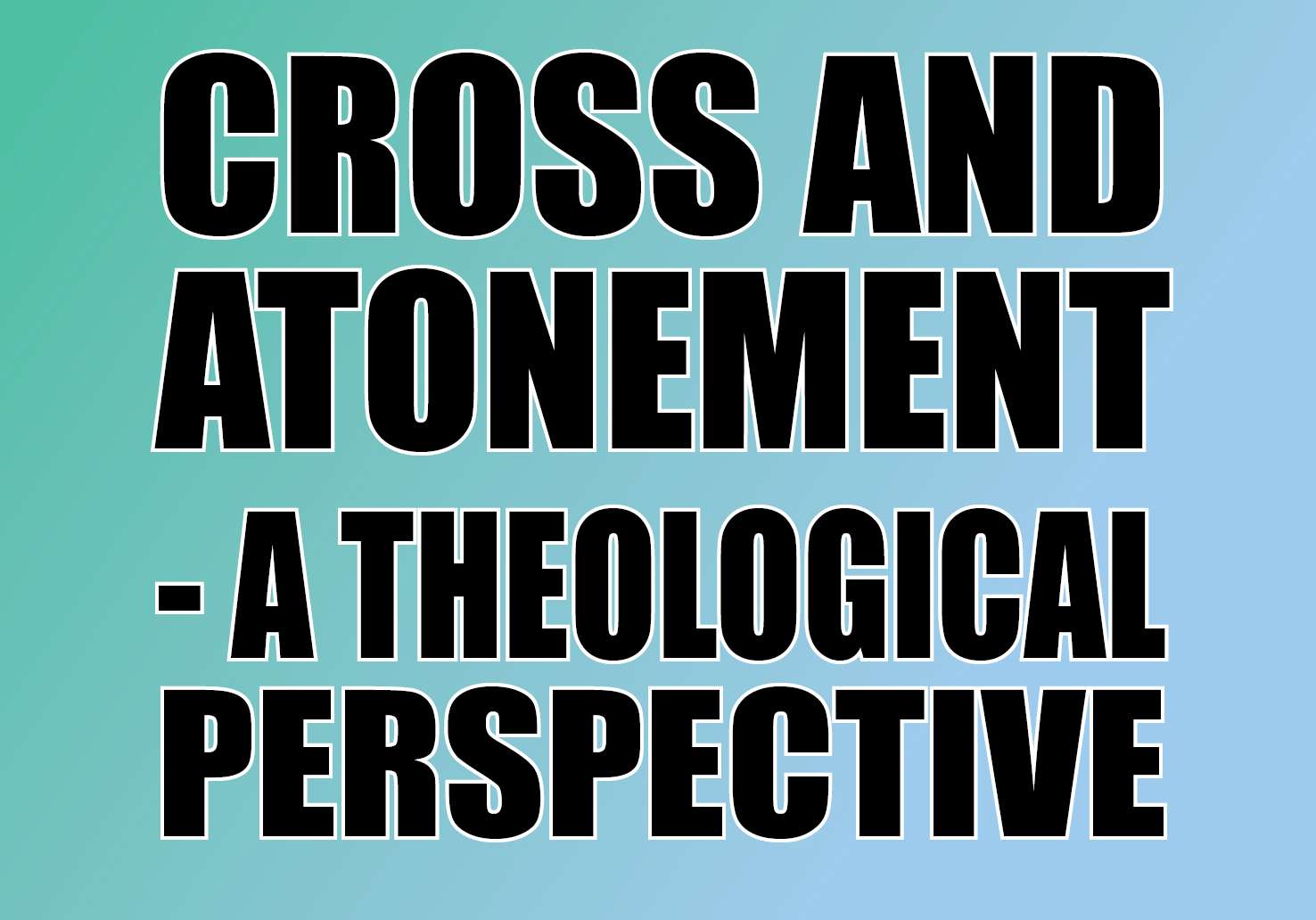

Theology and Ethics an Introduction
Dr. Domenic Marbaniang
Christian ethics is based on biblical revelation and the essential principle of divine love (agape). Paul clearly states this in Romans 13:8-10:
Let no debt remain outstanding, except the continuing debt to love one another, for whoever loves others has fulfilled the law. The commandments, “You shall not commit adultery,” “You shall not murder,” “You shall not steal,” “You shall not covet,” and whatever other command there may be, are summed up in this one command: “Love your neighbor as yourself.” Love does no harm to a neighbor. Therefore love is the fulfillment of the law.
The Christian view of love as the essence of ethics is known as Christian agapism (from the Greek agape, love). Love is listed as the greatest among the three virtues listed in 1 Corinthians 13:13
And now abide faith, hope, love, these three; but the greatest of these is love.
Ethics in Scholastic Theology to Reformation Theology
Medieval scholastic theology regarded faith, hope, and love as theological virtues in distinction from the four cardinal virtues (viz., wisdom, justice, temperance, courage). It was Thomas Aquinas (AD 1225-1274) who first listed the theological virtues in contrast to the cardinal ones that had been borrowed from Greek philosophy, listed in deuterocanonical and apocryphal books, and recognized by early church fathers such as Ambrose and Augustine (4th c) A.D.
Theological (Supernatural Virtues)
Love - virtue of spiritual affection
Hope - virtue of spiritual anticipation
Faith - virtue of spiritual knowledge
Cardinal or Human Virtues
Wisdom (prudence) - virtue of the practical reason or intellect
Justice - virtue of the conscience
Temperance (restraint, self-control)- virtue of the will and passion
Courage (fortitude, manliness) - virtue of the emotion
While Aquinas believed that the cardinal virtues could be formed by habitual practice, i.e. could be acquired by rigorous human efforts, he regarded the supernatural ones as only possible through supernatural grace. This was part of his bifurcation of nature and grace that attempted to reconcile faith with philosophy. He thought that there are certain things (like knowledge of God’s existence and the cardinal virtues) that could be worked out by human efforts alone; whereas, the higher truths and virtues such as knowledge of Christ and love could only be possible by divine grace. The cardinal virtues were originally borrowed from Plato while the idea of virtuosity through habitual practice was borrowed from his disciple Aristotle.
It must be noted that such bifurcation is absent from the Bible. Jesus did not bifurcate between faith and justice; on the other hand, He juxtaposed them together.
“Woe to you, scribes and Pharisees, hypocrites! For you pay tithe of mint and anise and cummin, and have neglected the weightier matters of the law: justice and mercy and faith. These you ought to have done, without leaving the others undone.” (Matthew 23:23, emphatics mine)
“But woe to you Pharisees! For you tithe mint and rue and all manner of herbs, and pass by justice and the love of God. ..” (Luke 11:42, emphatics mine)
After the Reformation, however, all hope in sole human efforts crashed as solo grace, solo faith, and solo scripture rose as the call and conviction of the church. Human depravity and inherent sinfulness were ubiquitously acknowledged in the evangelical community and virtuosity was only looked upon as selflessly possible through the work of the Holy Spirit. In his Lectures on Romans, Martin Luther opposed the Scholastic concept of virtuosity through habitual practice (human efforts) that was based on Aristotelian ethics. He wrote: "the Scholastics follow the method of Aristotle in his Ethics, and he bases sinfulness and righteousness and likewise the extent of their actualization on what a person does..."
"The righteousness of God must be distinguished from the righteousness of men which comes from works- as Aristotle in the third chapter of his Ethics clearly indicates. According to him, righteousness follows upon and flows from actions. But, according to God, righteousness precedes works and works result from it.
Christian theology teaches that unless the heart and conscience are first cleansed and purified, no genuine ethical understanding and action is possible. The heart must first be cleansed, for good acts can only overflow from a good heart.
For out of the heart proceed evil thoughts, murders, adulteries, fornications, thefts, false witness, blasphemies. These are the things which defile a man (Matthew 15:19,20).
the blood of Christ, who through the eternal Spirit offered Himself without spot to God, cleanse your conscience from dead works to serve the living God (Hebrews 9:14)
Ethical Extremes: Legalism vs. Libertinism
Both evangelical and pentecostal theologies, however, attempt to guard against two extremes that attempt to destroy the true meaning of grace in Christian ethics. The two extremes are legalism and libertinism. Legalism exalts the letter of the law above the spirit of law and makes observance of the commandments compulsory for salvation. Legalism praises people who demonstrate virtuous actions and condemns those who are caught in violation of the same. It highly exalts human capability, moral nature, and efforts, and idolizes the moral code above the person of God; thus, undermining the essentiality of divine grace. Legalism usually breeds hypocrisy since those who raise the standard of morality are themselves incapable of following it. Jesus came strongly against such hypocritical legalism:
Then Jesus said to the crowds and to his disciples: “The teachers of the law and the Pharisees sit in Moses’ seat. So you must be careful to do everything they tell you. But do not do what they do, for they do not practice what they preach. They tie up heavy, cumbersome loads and put them on other people’s shoulders, but they themselves are not willing to lift a finger to move them.”
“Woe to you, teachers of the law and Pharisees, you hypocrites! You are like whitewashed tombs, which look beautiful on the outside but on the inside are full of the bones of the dead and everything unclean. In the same way, on the outside you appear to people as righteous but on the inside you are full of hypocrisy and wickedness.” (Matthew 23:1-4, 27-28)
It is important for church leadership to make sure that they do not overburden believers with anything beyond that which is required by the Gospel and is in keeping with justice, mercy, love, and faith. One must learn from the Apostles who placed no legalistic burdens on the gentile converts except requiring them to stay away from idolatry, from sexual immorality, and from blood and strangled meat; the food laws mainly because of the prevalence of the Law of Moses in the Jewish synagogues (Acts 15:19-21). Christian ethics does not emphasize on the letter of the law, but on the spirit of the law; therefore, love becomes the determining principle in all ethical conduct.
If your brother or sister is distressed because of what you eat, you are no longer acting in love. Do not by your eating destroy someone for whom Christ died (Romans 14:15)
The other extreme is libertinism that takes God’s mercy and grace for granted and ignores the importance of God’s law. God’s grace is not lawless. Jesus never told His disciples to forsake the law. In the passage quoted above, He, in fact, teaches to be “careful to do everything” that the scribes and Pharisees teach. He taught His disciples that unless their righteousness surpassed that of the Pharisees and the teachers of the law, they would certainly not enter the kingdom of heaven (Matthew 5:20). It is important to know that the moral demands of grace are higher than that of the law. A quick reading of the Sermon on the Mount will make this clear. Without any doubt, it is impossible for anyone to fully practice Christ’s moral teachings without the very help of Christ Himself. But, following the Reformation emphasis on grace, however, there did come a period when Christianity seemed to undermine the high morality of Christ by promoting a cheap salvation (as it continues to be done by some quantity-oriented churches today). It had not only forgotten the cost of our salvation but also forgotten the cost of discipleship. The German theologian Dietrich Bonhoeffer observed this straying event and raised a banner of return to costly grace. In his The Cost of Discipleship, he wrote:
Cheap grace is the deadly enemy of our Church. We are fighting to-day for costly grace.
Cheap grace means grace sold on the market like cheap jack's wares. The sacraments, the forgiveness of sin, and the consolations of religion are thrown away at cut prices. Grace is represented as the Church's inexhaustible treasury, from which she showers blessings with generous hands, without asking questions or fixing limits. Grace without price; grace without cost!
Cheap grace means the justification of sin without the justification of the sinner.
Nothing is more disastrous than a theology bereft of morality. Libertinism turns the grace of our God into lewdness and denies the only Lord God and our Lord Jesus Christ (Jude 1:4). Confession of God amounts to nothing when actions deny Him.
They profess to know God, but in works they deny Him, being abominable, disobedient, and disqualified for every good work. (Titus 1:16)
The goal of all Christian instruction is a life that overflows with love and works of love.
Now the purpose of the commandment is love from a pure heart, from a good conscience, and from sincere faith (1 Timothy 1:5)
All Scripture is given by inspiration of God, and is profitable for doctrine, for reproof, for correction, for [c]instruction in righteousness, that the man of God may be complete, thoroughly equipped for every good work. (2 Timothy 3:16,17 emphatics mine)
For we are God’s handiwork, created in Christ Jesus to do good works, which God prepared in advance for us to do. (Ephesians 2:10 emphatics mine)
Holy Spirit Ethics
There are three important facts about Christian ethics that must be unders-cored.
1. The foundation of Christian ethics is the very moral nature of God who is love.
2. True love is revealed to us in the sending of His Son.
3. This love is poured out into our hearts by the Holy Spirit of our adoption.
Jesus taught that the greatest commandment was to love God with our entire being and to love our fellow humans as ourselves:
Then one of them, a lawyer, asked Him a question, testing Him, and saying, “Teacher, which is the great commandment in the law?”
Jesus said to him, “‘You shall love the Lord your God with all your heart, with all your soul, and with all your mind.’ This is the first and great commandment. And the second is like it: ‘You shall love your neighbor as yourself.’ On these two commandments hang all the Law and the Prophets.” (Matthew 22:35-40)
Then, He told His disciples: A new commandment I give to you, that you love one another; as I have loved you, that you also love one another. (John 13:34)
The distinction of the new commandment from the old is that the new is revealed in the very living presence and practice of Christ: “as I have loved you”. John declares in his first epistle that God is love, that this love was manifested to us in God’s sending of His Son so that we might live through Him, and therefore, since God so loved us, we OUGHT to love one another (1 John 4:7-11). Paul tells us that God not only demonstrated His love by sending His Son to die for us, but this love has also been poured out into hearts by the Holy Spirit that He has given unto us (Romans 5:5,8). Therefore, those who walk in the Spirit will not obey the lust of the flesh but will demonstrate the fruit of the Spirit, viz,. love, joy, peace, longsuffering, kindness, goodness, faithfulness, gentleness, self-control (Galatians 5:22-23).
Many Christian teachers understand the nine virtues as one fruit of the Spirit, love. The demonstration of the fruit of the Spirit in a Christian’s life gives evidence of spiritual maturity and edification. Speaking in tongues, prophesying, and having great faith are not the marks of spiritual maturity (1 Corinthians 13:1-3). The Corinthian church was filled with the gifts of the Spirit but was bereft of the fruit of the Spirit. It was carnal.
Christian ethics is Christ-centred and Spirit-outworked. The virtues such as love, joy, peace, and gentleness are not the mere consequences of human efforts, but flow from the living presence of Christ in us through His Spirit so that we walk as He walked. Our moral obligation to love (ought-ness) proceeds from the revelation of love in Christ. Our standard of morality is the life of Christ - “He who says he abides in Him ought himself also to walk just as He walked” (1 John 2:6). This walk requires humility without which one cannot experience the grace of the Lord through the communion of the Holy Spirit to live a life that is pleasing unto Him.
Or do you think that the Scripture says in vain, “The Spirit who dwells in us yearns jealously”? But He gives more grace. Therefore He says: “God resists the proud, but gives grace to the humble.” (James 4:5-6)
For if you live according to the flesh you will die; but if by the Spirit you put to death the deeds of the body, you will live. For as many as are led by the Spirit of God, these are sons of God. (Romans 8:13,14)
In application, the Great Commandment of love to God and love to neighbor unfolds in acts of charity that do not just flow from a burden of duty but a cheerful generosity of love.
Pure and undefiled religion before God and the Father is this: to visit orphans and widows in their trouble, and to keep oneself unspotted from the world. (James 1:27)
If you really fulfill the royal law according to the Scripture, “You shall love your neighbor as yourself,” you do well; but if you show partiality, you commit sin, and are convicted by the law as transgressors. (James 2:8,9)
The evidence of salvation is faith that works through love (Galatians 5:6):
If a brother or sister is naked and destitute of daily food, and one of you says to them, “Depart in peace, be warmed and filled,” but you do not give them the things which are needed for the body, what does it profit? Thus also faith by itself, if it does not have works, is dead. (James 2:15-17).


























